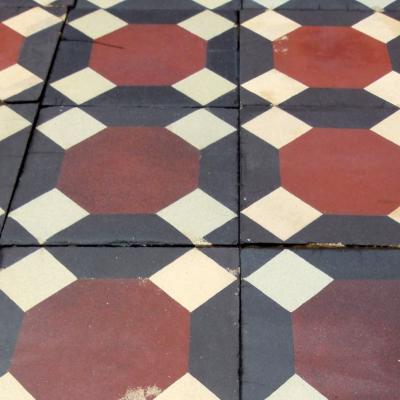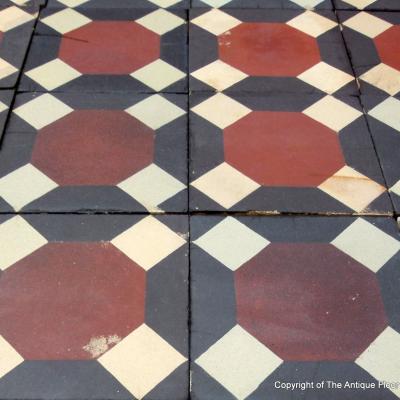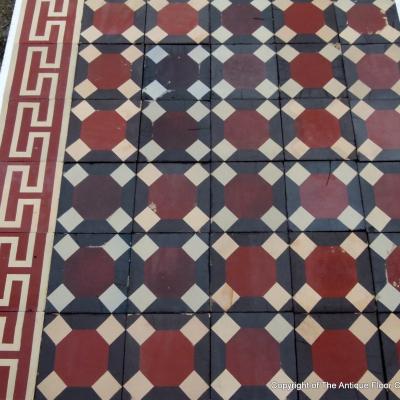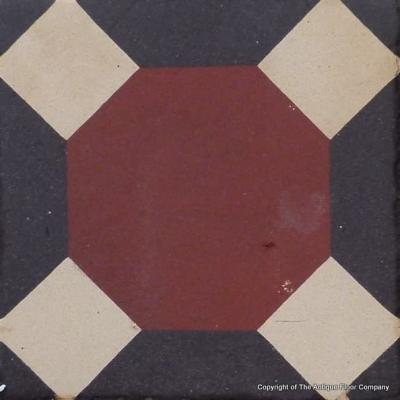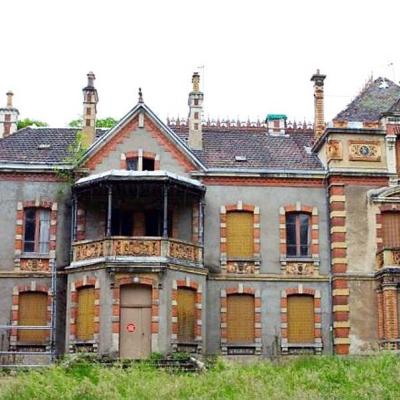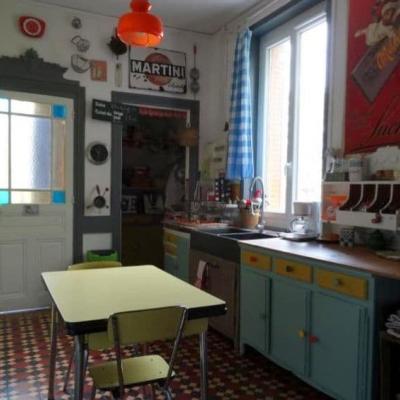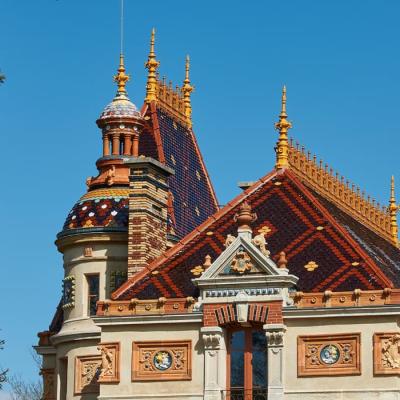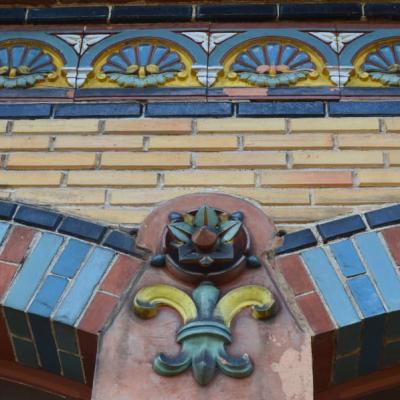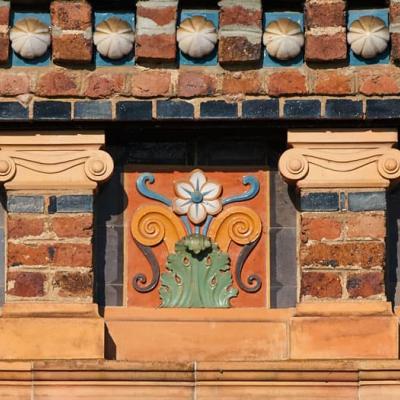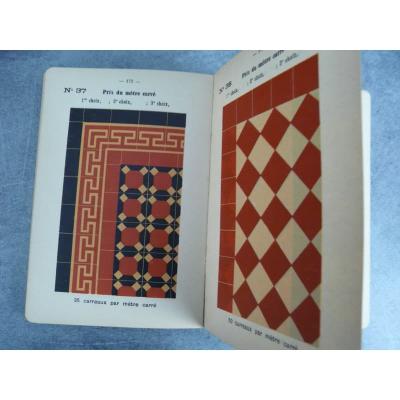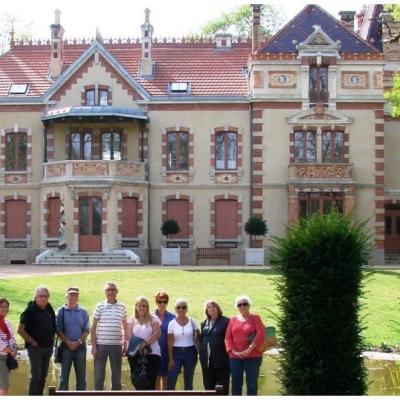Late 19th Century handmade Perrusson ceramic - 8.5m2
A large, 17cm sq, and heavy, 1.4kgs each, antique French ceramic tile
Manufactured and reverse stamped Perrusson, individually handmade in Ecuisses, Burgundy in the late 19th century
Total surface area of 8.5m2+ / 91.5 sq ft.
One of two Perrusson floors reclaimed from the same house, close to Paray Le Monial in Saone et Loire. The other floor can be found by clicking here
Owing to being made in small batches there is some beautiful tonal variations in slip colours, all adding to the uniqueness of each tile and the whole floor
We include a random sample of the tiles in the photo gallery as well as two photographs we have found from an unrelated house which has this floor laid in a bathroom and a kitchen. Additionally there is a scan from the original Perrusson catalogue showing both the field tiles and the borders.
Tile Quantities, give or take one or two:-
Black cross themed field tiles - 230 - 6.6m2 / 71.6 sq. ft
Geometric borders - 57 plus 3 corners (plus 2 free damaged corners) - 1.7m2 / 18.7 sq. ft or 10.2 linear metres / 33.5 linear ft.
Perrusson - a brief history...
Jean-Marie Perrusson was not only known for ceramic tile production but also for the production of bricks and roof tiles. Many of the lozenge themed terracotta mechanical tiles in Burgundy bear the Perrusson hallmark. He built his first brick making factory in 1860 and started mechanical tile production in 1863, to which he added a workshop for manufacturing ceramic tiles in 1875. Further expansion of the ceramic tile production in the Saône-et-Loire was initiated (in Saint-Julien-sur-Dheune in 1866, St. Pantaleon 1870), and even beyond the department (in Sancoins Cher in 1870 and Fontafié in Charente in 1878).
The company was renamed ‘Perrusson son and Desfontaines’ in 1890 and the factory also manufactured architectural ceramics and statues. In April 1960 the factory finally closed its doors. The vast majority of the original buildings constructed in 1890/1900 are destroyed with the offices, changing rooms of the factory, the concierge and the electrical workshop the only significant remnants of the site that can still be seen.
The Perrusson factory employed 40 workers in 1860, 80 by 1874, 130 in 1890, 300 at its peak in 1900, 280 in 1930 and 130 during 1945 to 1950.
Owing to their beautiful ceramic creations the Perrusson family became wealthy and built a large villa close to their Production. The villa was decorated internally and externally with the many fine examples of their work, from roof tiles and chimney pots to faience, floor tiles and more. Sadly, with the passage of time, the villa became derelict and was eventually purchased and restored by the French state as it remains an outstanding architectural statement of some of the finest ceramic work of the period. It can be visited for a small entrance fee and we include some photographs of the restored villa and a link can be found here to the Perrusson Villa website.



